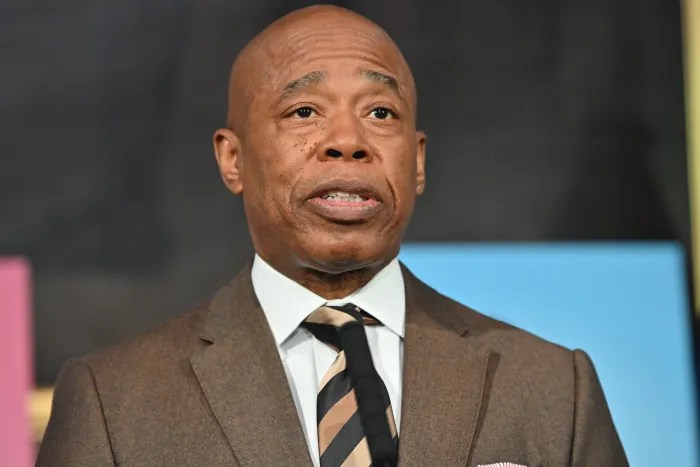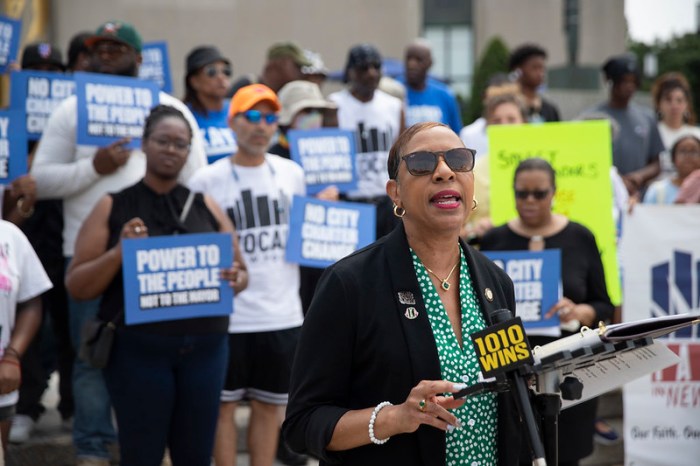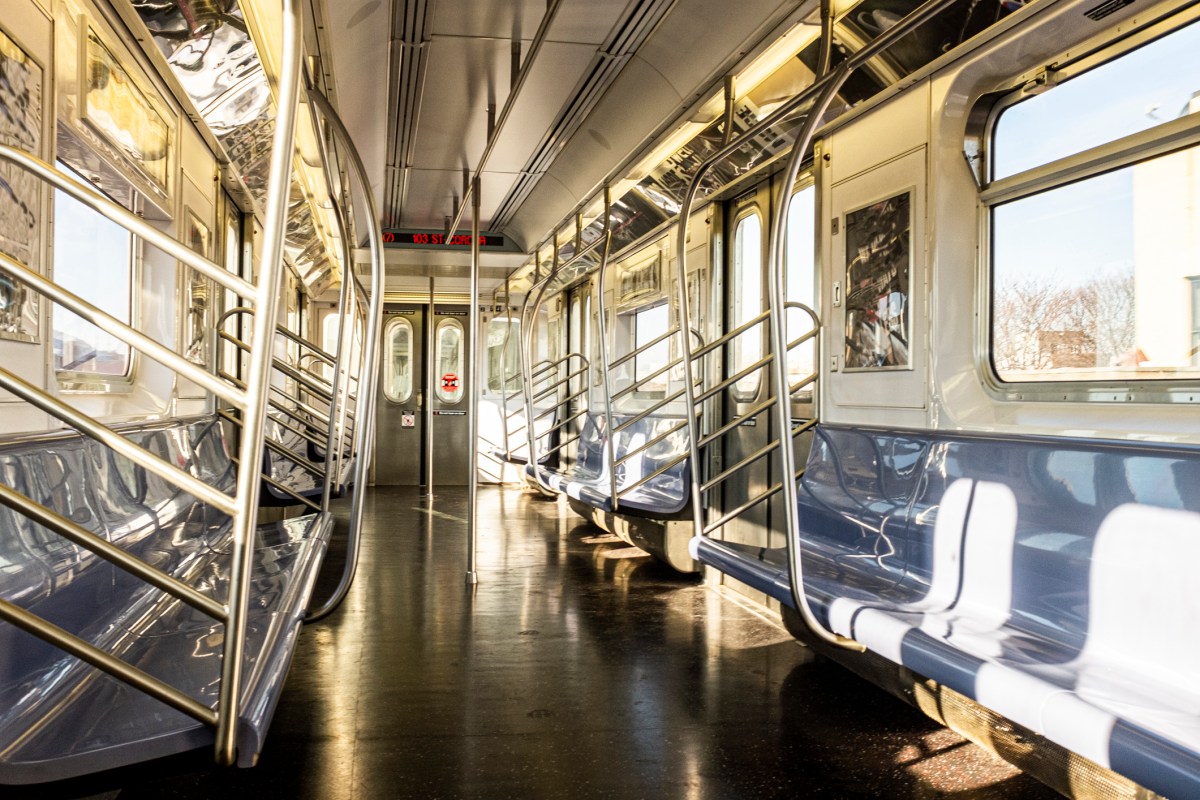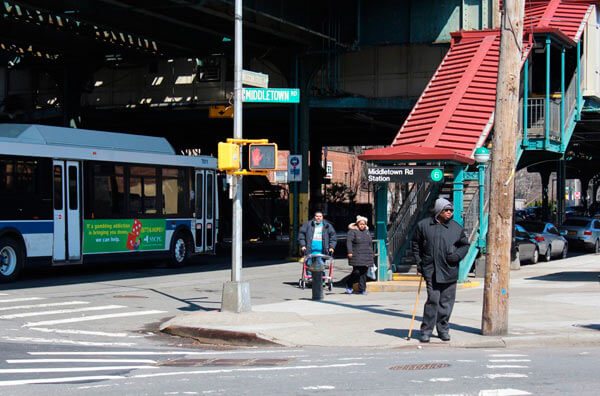For the second time this year, Mayor Eric Adams appointed a Charter Revision Commission (CRC) on Thursday. This time, the panel will be tasked with tackling the city’s generational housing crisis.
Adams’ first CRC was formed in the spring with a purported focus on public safety and fiscal responsibility. Opponents, including the City Council, viewed the first CRC as a power grab by the mayor to expand executive authority.
But the new CRC Adams appointed on Dec. 12, chaired by Robin Hood CEO Richard R. Buery Jr., will review the New York City Charter with an eye toward addressing the city’s housing crisis — a pressing issue that’s left a historically low 1.4% rental vacancy rate, making it difficult and more expensive for working-class New Yorkers to find housing.
“Our city is in the midst of a profound affordability crisis. For millions of low-income New Yorkers, housing costs are the central struggle of their lives. For millions more, especially low-income New Yorkers, our housing crisis severely limits where New Yorkers can live, what schools they can attend, how they can get to work, and whether their families can stay together,” Buery said. “Our task is to examine the charter to see how we can better meet this generational challenge.”
Sharon Greenberger, president and CEO of YMCA of Greater New York, will serve as vice chair and Leila Bozorg, executive director of Housing in the Mayor’s Office, will serve as secretary.
Greenberger has worked to reimagine programs and services to meet community needs, expanding teen programming and improving health services. Bozorg has extensive experience in affordable housing and land use policies, having served as a Commissioner on the New York City Planning Commission and Deputy Commissioner at the NYC Department of Housing Preservation and Development.
Other members of the group are housing and affordability experts, civic and faith leaders and community members including: Reverend A.R. Bernard, president of Christian Cultural Center, Grace C. Bonilla, president and CEO of United Way of New York City, Shams DaBaron, a leader in redefining homelessness and housing solutions, Anita Laremont, a partner at Fried Frank Harris Shriver & Jacobson LLP, Dr. Lisette Nieves, president of the Fund for the City of New York, Julie Samuels, president and CEO of Tech:NYC and Diane Savino, senior advisor at City Hall.
“We will do everything in our power to continue delivering affordable housing to New Yorkers,” Adams said. “Our administration’s housing goal is clear: deliver as much affordable housing to working-class New Yorkers and their families as we make our city more affordable — and we will continue to use every tool at our disposal, including a careful examination of the city’s charter, to create and preserve affordable housing in our city.”
Another power grab?
The announcement points toward a potential shift in how Mayor Adams addresses citywide concerns—a shift that hasn’t been widely accepted by the City Council, which is responsible for introducing and voting on legislation to improve the quality of life for New York residents.
Shirley Limongi, a council spokesperson, said the council is ready to oppose any potential shut-outs the newly appointed CRC could cause for them.
“Mayor Adams’ Administration once again appears ready to politicize the Charter Revision Commission process by establishing yet another commission to block the democratic rights of New Yorkers to offer charter revisions, despite the Council opening its own commission up to the mayor,” Limongi told amNewYork Metro Thursday. “It’s unfortunate that they would escalate conflict with the City Council right after we worked together to reach an agreement that helps address New Yorkers’ housing needs.”
According to Limongi, the Mayor’s announcement emphasizes a need for state legislatures to pass pending laws that protect against what they call “smash-and-power grabs” by mayors, and alleged that City Hall seemed eager to work with President-elect Donald Trump to fulfill his campaign promises of mass deportation at the expense of the city’s immigrant community.
“This commission seeking to hand our city over to the Trump administration to sow chaos by changing sanctuary city laws that protect our diverse immigrant communities and public safety in New York City will be something that Council Members and New Yorkers fight and oppose,” she said. “Mayor Adams may want to prioritize wealthy corporate interests that have no interest in working-class New Yorkers, but the Council will always stand up to defend all the people in our city whose voices we represent.”
Mayor Adams’ first CRC gambit earlier this year proved successful not only in knocking a City Council referendum on checking mayoral appointment power off the ballot, but also at the ballot box itself. During the November 2024 general election, New Yorkers approved four of the five ballot proposals that the CRC created focused on sanitation, capital planning, public safety and fiscal responsibility.
The City Council and progressive opponents of the mayor, however, opposed all five proposals because they believed it shifted too much power away from the City Council and toward the mayor. Two of the approved proposals, in fact, require the City Council to provide fiscal cost estimates for legislation and mandate greater public notice on impending votes on legislation impacting public safety agencies.
The new CRC’s work is expected to be completed by the end of 2025 and will significantly impact the city’s affordable housing landscape.
“I am honored to be a part of this distinguished commission focused on critical housing reforms and look forward to hearing from New Yorkers about how our charter can be improved to meet their needs,” Greenberger said.
The new CRC will begin its work immediately, City Hall said, with public meetings and hearings scheduled throughout 2025.




































